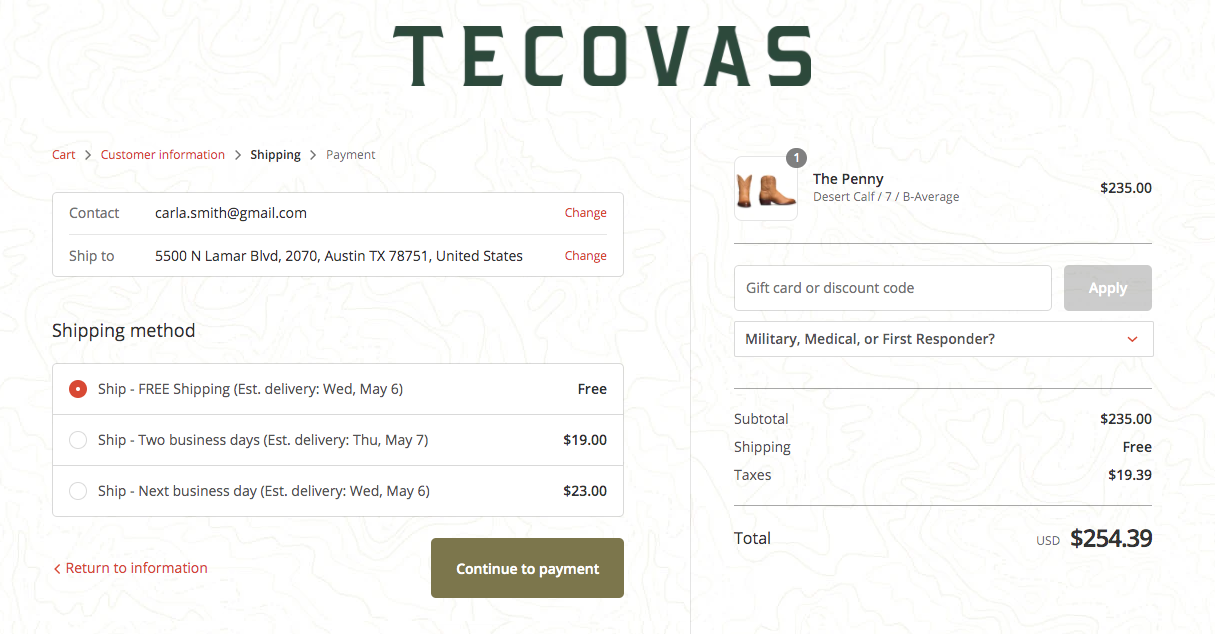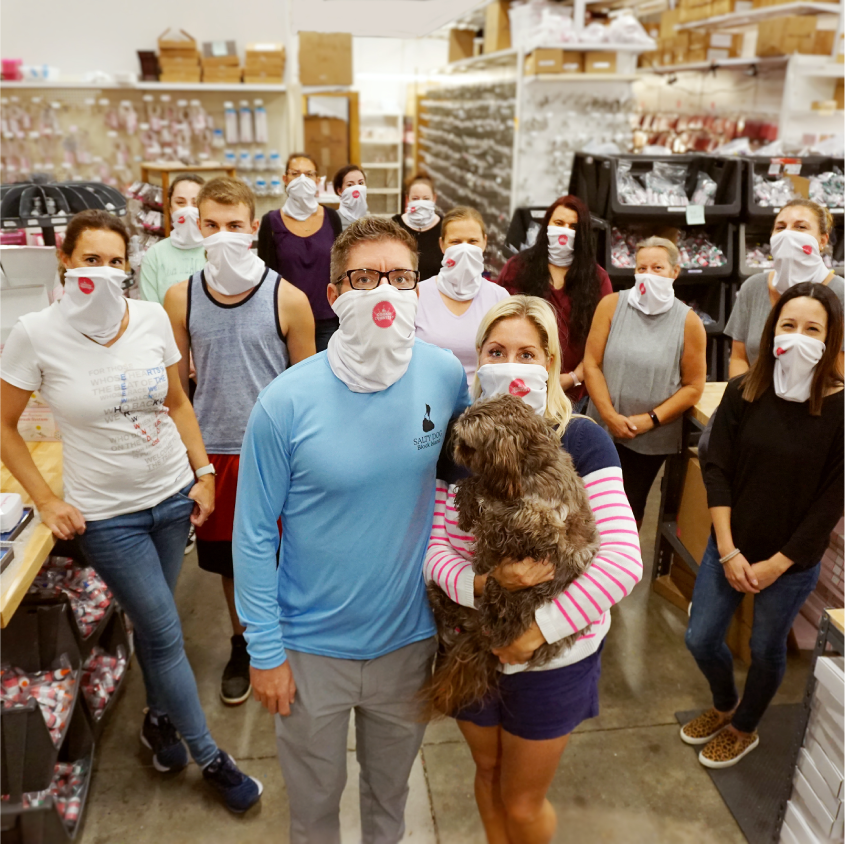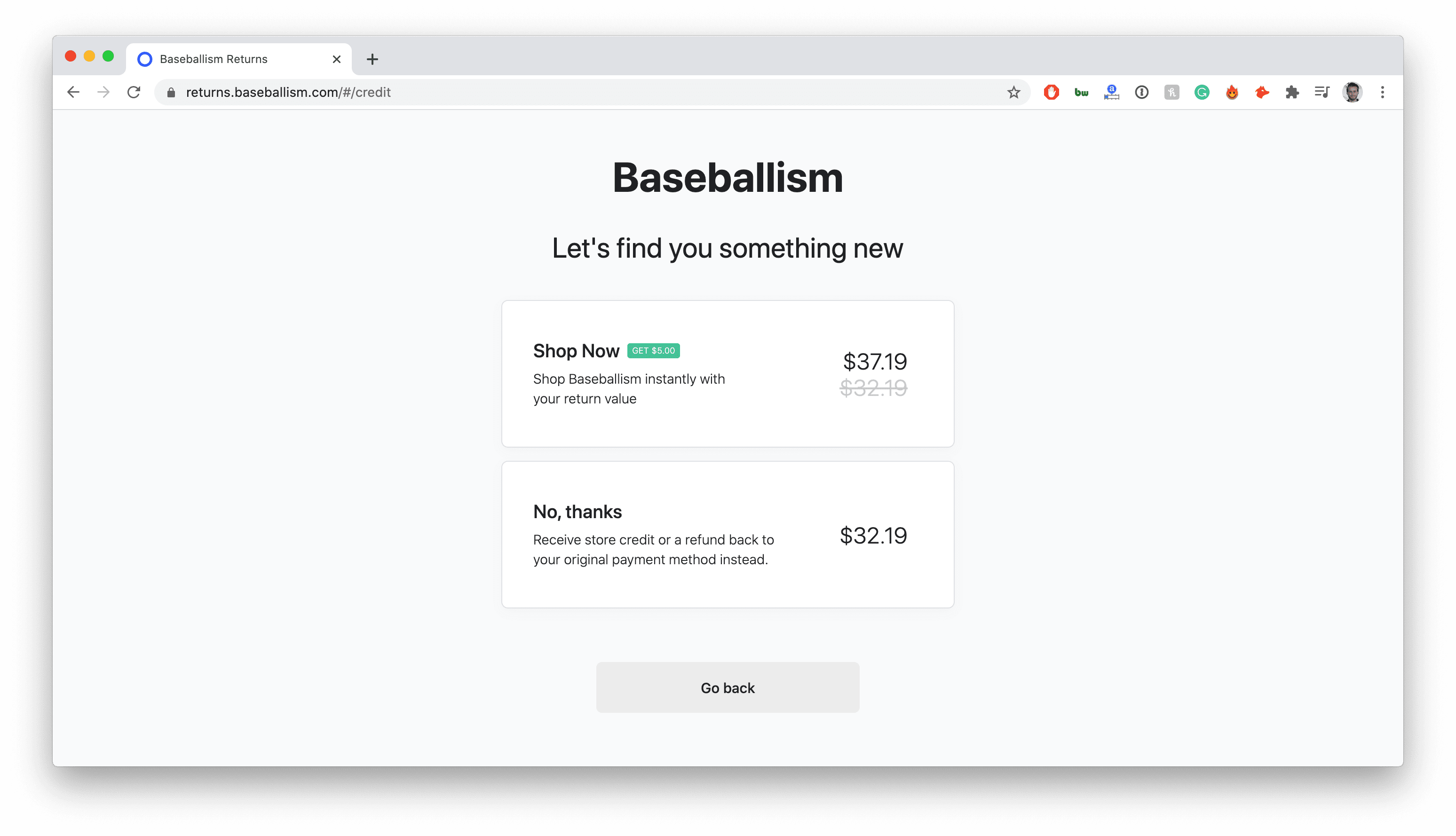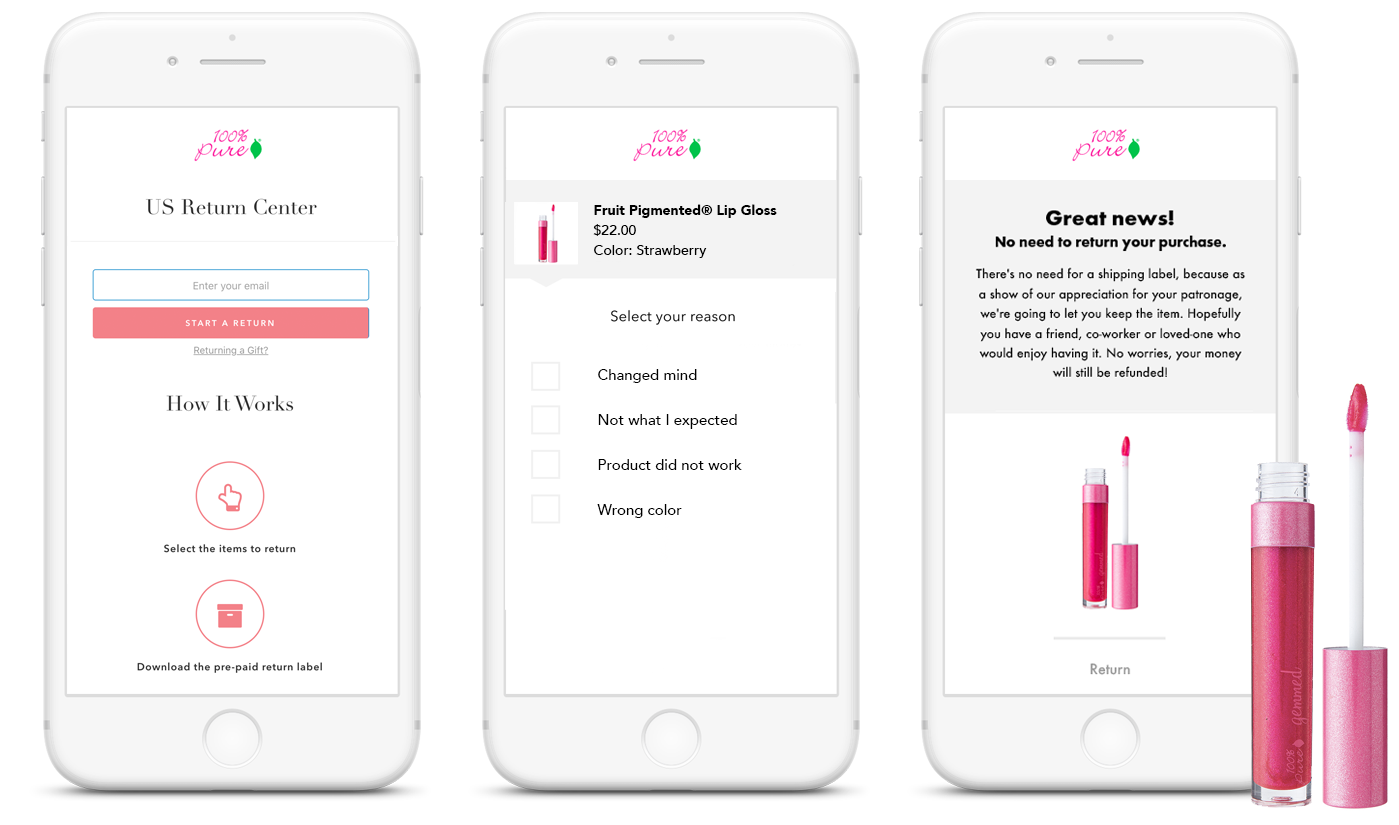BFCM 2020 is likely to be different than before, but it’s looking like it will be large. Many brands have already broken BFCM records in the summer months, and research from Google indicates 73% of U.S. holiday shoppers say they plan to do more holiday shopping online this year than they have in previous years. Shoppers are also expanding what they’re buying, with 30% of consumers having purchased from brands they’ve never bought from before.
At a macro level, supply chains face mounting challenges. Surging demand for online shopping has caused congestion on freight networks, while passenger networks are well below capacity, yet it will take time to retool infrastructure. Globally connected supply chains have faced struggles well beyond COVID-19 lockdowns impacting production—even piracy on shipping lanes is seeing a resurgence that’s having real impacts.
And yet shoppers’ expectations have never been higher. They want to receive their products quickly, securely, and for minimal cost. And, if there’s any issue, they want an easy way to get a replacement or a refund. Furthermore, with increased adoption of ecommerce since COVID-19, there are more first-time shoppers than ever before, who may have questions or want more assurance about how they can receive (and if necessary, return) their purchases.
This post explores examples of how Shopify Plus brands are using shipping and returns techniques to increase conversion, grow average order value (AOV), and build customer loyalty.
Build accurate options into checkout
When shipping to customers around the country—or around the world—brands need to not only find the lowest cost options available, but also to present choices in a clear way. Too many choices can be off-putting, and too few can lead to abandoned carts.
Shopify Plus’ certified app partners include shipping tools to help drive conversions by giving shoppers choices, while protecting brands from any fluctuations or external factors affecting shipping costs.
ShipperHQ works with Shopify Plus brands to calculate more accurate shipping rates, and offer relevant delivery options based on factors like customer location, product dimensions, weight, type, price, and quantity filters. Additionally, retailers can show delivery date and time details at checkout as well as apply custom shipping rules around peak periods, loyalty, discounts, or other incentives.
Founded in 2015, Austin-based Western-wear retailer Tecovas has won a reputation as the “Warby Parker of cowboy boots”, selling hand-crafted boots direct to consumers for under $300. Noah Solomon, Digital Director at Tecovas emphasises the importance of the buying experience, and how shipping plays a key role.
“We want to try and provide as close to an in-store experience as possible for those that can’t visit, so fast, free shipping is the most important place to start.”
The company wanted to move past vague windows of time (e.g. 3–6 days), and offer more precise choices that let customers make a decision based on the time and costs they were willing to pay. Using ShipperHQ, Tecovas can show shoppers the best possible options based on their address and a specific delivery date instead of a range.
During the holiday shopping season, it is especially important to be transparent with customers about delivery expectations. In fact, in a recent consumer survey conducted by ShipperHQ, they found that 82% of people prefer to shop from a retailer that shows actual delivery date estimates. And 44% are even willing to pay more at checkout for this information.

Doing this is not only better for the shopper, but also better from a logistical perspective too.
“We are able to save on labor costs by smoothing out our fulfillment process. Since we now provide our customers with accurate delivery date information—one that takes into account how long dispatch actually takes—we can batch ship our orders more efficiently,” says Solomon.
Add more shipping carriers at lower costs
As businesses expand their customer reach across regions, the costs incurred to ship items can fluctuate significantly. Many businesses start out leveraging their national postal carrier, and it’s in both the business’ and the carrier’s best interest to find the lowest cost.
But a business may not actually be getting the best rate with their default shipping option due to geographic reach that carriers have, as well as other factors like the dimensions and weight of items, and the urgency at which they’re needed.
Shopify Plus merchant The Cookie Countess sells high-quality decorating tools and supplies for creating expertly designed cookies, cakes, cupcakes, macarons, and other delicious delights. Over the years, their brand has expanded internationally, and for every country they service, they must work out different shipping costs, services, and customs paperwork.

The team chose Shippo, connecting the certified app to their store in just a few minutes. Every time an order is fulfilled in Shippo, the order’s fulfillment status and tracking info automatically syncs back to Shopify in real-time, ensuring that there are no discrepancies between tools. The integration means The Cookie Countess gets the best rates from UPS, DHL, and other carriers.
“We have some of our package types auto-loaded into Shippo’s ‘Saved Package’ section to make it easy to choose the most frequently used boxes without having to key them in every time. We also print our [shipping] labels directly to a thermal printer and can process a label from start to finish in less than 40 seconds,” says Jon Ramos, Founder, and Co-Owner of The Cookie Countess.
Unlock new markets with shipping
Going international allows brands to reach massive new markets of potential customers. It’s easier than ever to build a story and messaging that appeals to a community, regardless of where the members live, yet going global brings new complexities to operations. There are administrative aspects to manage, the need to build a reliable and fast network to deliver worldwide, and challenges in serving different countries while taking into account varied customs tax and duty regulations.
Biaggi makes a range of foldable suitcases and duffel bags for travelers. The very nature of their product appealed to a global audience, yet the brand had hesitated on committing to international expansion due to inexperience in global shipping and logistics. Their items were higher priced and physically larger. The company didn’t have in-house team members to manage multiple couriers or shipping automation tools, resulting in higher shipping costs, increased operational overhead, and longer delivery times for customers.
Biaggi worked with Easyship, which integrates right into Shopify’s checkout, syncing product details, showing dynamic rates and delivery lead times to anywhere in the world, generating labels, and streamlining status and tracking updates. Brands have access to 50 courier partners, getting the best pre-negotiated enterprise rates for services from postal to express, or they can link their own rates. The integration covers tax and duty automation, with the result being that shoppers anywhere can see clear, transparent options: cheapest, fastest, or best value.

“We didn't offer international shipping because the costs were too high, and while we were willing to contribute something towards the customers shipping cost, we didn't have a way to pull it off. Easyship provided us with solutions to these problems, plus we're now able to offer 3 shipping options to every international customer seamlessly at checkout,” says Biaggi founder Stephen Hersh.
This allowed Biaggi to immediately ship to anywhere in the world. The team saved time on tedious operational tasks, cutting 5–10 hours of support work to less than 1 hour per week. By expanding to a global audience, Biaggi has grown revenue 20% while cutting over $100,000 on annual shipping costs, leading to further growth for the company.
Make exchanges more compelling than refunds
More than 50% of returns are simply because the customer has the wrong size. They are not returning because they want their money back, they’re returning because they want a different product. This is especially true for online apparel brands that have multiple sizing variations. But other verticals run into similar situations. If you are selling bedding, handbags, or jewelry, your customer might want a different color or a different style, not a refund.
Unfortunately many brands have a return policy and process that is optimized to facilitate refunds. But when money is refunded, it is much more likely that a shopper will take their refund and spend it elsewhere. It often signals the end of the relationship.
Offering the ability to easily exchange for a new product allows you to keep more customers. You retain the revenue, sell more product, and provide a better customer experience.
Loop outlines several ways brands can help customers choose exchange over refunds:
Offer a longer exchange window than you do for a refund: This ensures your customer still has ample time to return but makes an exchange more likely.
Incentivize exchanges with bonus credit. When a customer takes the exchange they are actually getting more credit to shop with than if they ask for a refund.
Offer a small shipping fee on refunds.
Shopify Plus brand Baseballism was founded by four college baseball players, first as a youth camp and then as a seller of clothing and accessories for fans of the game. Their free returns policy is a strong selling point.
Shoppers that choose to exchange instead of refund can select the item they want and are even given an additional $5 of bonus credit if they want to get something more expensive than what they originally bought. The newly selected item is shipped out as soon as the return is dropped off to the carrier. This means customers get their exchanged items faster. This innovative approach has increased Baseballism’s exchange rate to 53%. More than half of all returns are choosing to exchange for a new product. It’s a home run for shoppers and for the brand.

These simple policies demonstrate to the shopper that you want them to find a product they love, and it offsets any negative feelings related to their initial purchase. It’s a powerful way to create a feel-good moment that shoppers won’t forget.
Reduce waste and improve environmental outcomes
The very nature of shipping requires transportation to move items from a warehouse to a shopper—and in the case of a return, back to the warehouse. With shoppers more conscious than ever about the environmental impacts of their shopping, companies are looking at ways to reduce this impact.
Shop Pay, for example, offsets the carbon footprint of every purchase tracked through the app.
Shopify tracks and calculates the carbon emissions for every order processed through Shop Pay. This is offset by a tree protection program that has already protected 15,635,682 trees to offset 13784.42 tons of carbon emissions.
100% Pure produces a wide range of beauty products, and strives to be environmentally sustainable in its operations. Although its return rate was already lower than the industry average, their sheer volume was visible in bins of returned products. For a brand so committed to a sustainable environmental footprint, they wanted to improve.
Working with Returnly, 100% Pure implemented several features to improve the returns experience, with the goal of reducing returned items and the associated environmental impact. With security checks as part of the process, 100% Pure can issue instant credit to allow them to purchase again before even shipping the original items back. Additionally, the company can identify customers with good returns habits and, for those eligible, allow them to keep the original product at no cost, with a suggestion to gift it to a friend or family member. This is a positive interaction that builds loyalty, but also reduces the need to ship the item back.

“It pains me when I go into our warehouse and see bins of products that are not usable anymore. And it’s not just the product, it’s the packaging that goes with it. Why not just let customers hold onto it and they can pass it on. That model made so much more sense for us.” - Ric Kostick, Co-Founder and CEO, 100% Pure
The effects on the bottom line are clear. 100% Pure has seen a 30% return to repurchase conversion rate and a 75% conversion uplift on repurchase orders, and the company is growing 40% year over year.
Make shipping and returns a strategy to grow revenue
Brands are finding new ways to keep customers happy throughout the entire purchase cycle. Implementing cost-effective and customer-centric shipping practices, and providing flexibility and assurance over returns is helping brands unlock new markets, increase conversion, grow AOV and build customer loyalty and repeat purchases.
Shopify Plus brands like Allbirds, Jolyn, and Chubbies use many technologies to grow their audience, boost shopper experience, increase conversion, and nurture loyal repeat buyers. Thousands of Shopify Plus brands use shipping and returns management apps, along with other powerful technologies including from these new partners:





